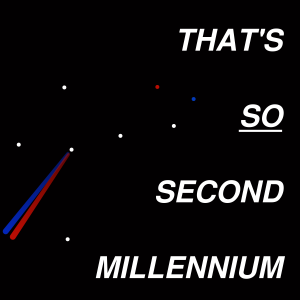Episodes

Thursday Aug 29, 2019
Post Christian: The Galileo business in 250 words
Thursday Aug 29, 2019
Thursday Aug 29, 2019
I prepared these notes for an interview with Brigid Ayer on the Faith in Action Show for Catholic Radio Indy, but ended up using almost none of them. We talked instead about matters in the present day, and why Bill (also on the interview) and I started TSSM. The interview is planned to go up the third week of September, with the podcast version of the episode on their PodBean feed Monday the 16th and the radio broadcast later in the week.
The dominant proximate source for this was a blog post or two from the Vatican Observatory blog, which I cannot even find right now, due to a surplus of riches in their coverage of the subject. For your own purposes, there are also a million books. I loved Galileo's Daughter; I haven't yet gotten up the courage to tackle The Galileo Affair: A Documentary History.
Science, Church, Galileo.
The Galileo affair was a messy piece of work, which a number of people, bishops and cardinals included, inside the Church recognized at the time. Galileo himself remained a Catholic and endured his condemnation with irritation as an obvious miscarriage of justice and a misapplication of the Church's own teachings. At the time, his ideas were considered by a number of people to be heretical both because they contradicted simple-minded interpretations of certain passages in the Bible and because, essentially, they contradicted Aristotle.
Aristotle's philosophy is immensely insightful, and continues to be a viable means of interpreting reality, but not all of it equally. The Scholastics had fought a long campaign to integrate Aristotle into the fabric of Christian doctrine, and the result was a beautiful intellectual accomplishment, but it allowed Aristotle to take too much significance even in matters where his thinking is simply not that insightful or valuable. He took the geocentric universe for granted.
When Galileo set out to prove the geocentric model wrong, it was easy for people at that time of religious turmoil to condemn him. On one side, Catholics who were sensitive to the shrill Protestant shrieking about Scripture were not eager to be forced into reading the handful of passages that seem relevant to the issue poetically or figuratively. On the other, in attacking something that Aristotle taught, essential or not to his philosophical framework, Galileo could be read by others to be trying to overturn all of philosophy and theology along with it.
The condemnations of 1633 were never enforced all that rigidly, and during the 18th and 19th centuries the official proscriptions on his thought and writings were loosened. The popes since Leo XIII have piece by piece vindicated Galileo completely, culminating in two statements by John Paul II (in 1991 and 2000, as I recall, and also belonging on the reading list) that said the cardinals and popes in 1613-1633 had made mistakes and been wrong to treat Galileo the way that they did.
The condemnation of Galileo was never a matter of infallible magisterium. The magisterium of the Church is exercised in the matters of faith and morals, not astronomy or philosophy, and not even social science. Further, the trial of an individual is not the sort of place one would look for magisterial teaching. Some of the Ecumenical Councils were called to try heretics like Arius, and those are the very definition of magisterial teaching, but you only get an E.C. called to debate your writings if you have 1) a massive movement, hence your trial is not really about you, but about ideas wandering at large in society and 2) the issue you are leading people on about is actually squarely in the arena of the teachings of the faith.


No comments yet. Be the first to say something!